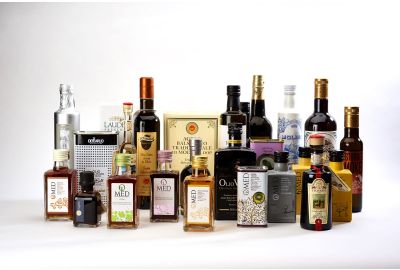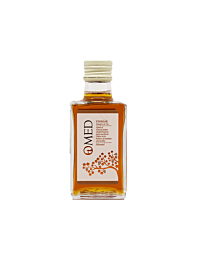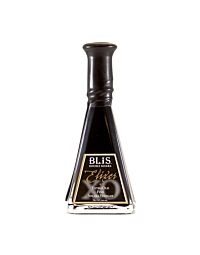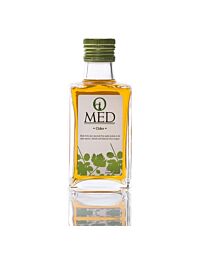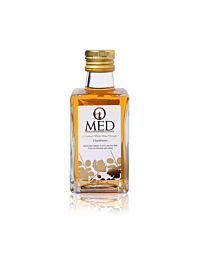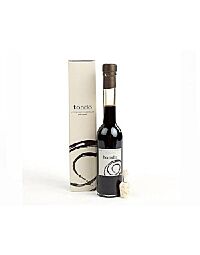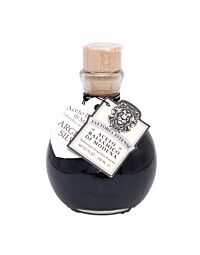Loading...
31 view(s)
Vinegar, a staple in kitchens worldwide, transcends its humble origins as a simple acidic solution. This versatile ingredient, produced through the fermentation of ethanol by acetic acid bacteria, offers a wide array of types, each with its unique flavor profile, culinary applications, and health benefits. From enhancing dishes with a burst of acidity to its use in traditional remedies and its intriguing production process involving the "mother" of vinegar, let's dive into the fascinating world of vinegars.
Culinary Uses of Vinegar in Professional Kitchens
Chefs around the globe harness the power of vinegar not just as a condiment but as a crucial component in cooking. The acidity of vinegar can balance the richness of fatty foods, add a clean, sharp contrast in sweet dishes, and provide a backbone in sauces and marinades. Here are some ways chefs creatively apply different types of vinegar:
1. Enhancing Flavors
Balsamic Vinegar: Aged balsamic vinegar, with its complex sweetness and acidity, is perfect for drizzling over grilled vegetables, strawberries, or even vanilla ice cream.
Apple Cider Vinegar (ACV): Known for its fruity tang, ACV is ideal in salad dressings, marinades, and to add brightness to soups and stews.
2. Pickling and Preserving
White Vinegar and Rice Vinegar: Both are popular choices for pickling vegetables, with rice vinegar being favored for its milder acidity in Asian cuisines.
3. Deglazing and Sauces
Red Wine Vinegar: Its robust flavor is perfect for deglazing pans to make rich sauces for meat dishes.
4. Baking
A small amount of vinegar can stabilize egg whites for meringues or balance the sweetness in desserts.
Health Benefits of Vinegar
Vinegar is not only valued for its culinary versatility but also for its health benefits, which have been touted for centuries. Here are some key benefits associated with vinegar, particularly apple cider vinegar:
1. Digestive Health
ACV is believed to aid digestion and help regulate blood sugar levels, making it a popular choice for those monitoring their glycemic index.
2. Weight Management
Some studies suggest that vinegar can increase feelings of fullness, thereby reducing overall calorie intake and supporting weight loss efforts.
3. Antimicrobial Properties
Vinegar has been used as a natural disinfectant due to its antimicrobial properties, making it effective for cleaning and food preservation.
The "Mother" of Vinegar
The "mother" refers to the complex structure of acetic acid bacteria and cellulose that develops during the fermentation process. This gelatinous substance is found in unfiltered and unpasteurized vinegar varieties, such as raw apple cider vinegar. The presence of the mother is said to enhance the nutritional and probiotic profile of the vinegar, contributing to its health benefits.
Choosing and Storing Vinegar
When selecting vinegar, consider the intended use—whether for cooking, dressing, or health purposes. Unpasteurized vinegars with the mother intact are preferred for their probiotic qualities, while specific culinary applications may benefit from the distinct flavors of aged or specialty vinegars.
Proper storage is crucial for maintaining the quality of vinegar. It should be kept in a cool, dark place to preserve its flavor and acidity. Most vinegars have an indefinite shelf life due to their acidic nature, which prevents spoilage, but their quality is best within the first few years.
Conclusion
Vinegar's role in culinary arts and health practices is a testament to its enduring appeal and versatility. From the sharp tang of white vinegar in pickling to the rich complexity of aged balsamic in gourmet dishes, and the health-promoting properties of apple cider vinegar, this ingredient's spectrum of uses is vast. By understanding the various types of vinegar, their culinary applications, and health benefits, chefs and home cooks alike can elevate their dishes and embrace the traditional and innovative uses of this timeless ingredient.

